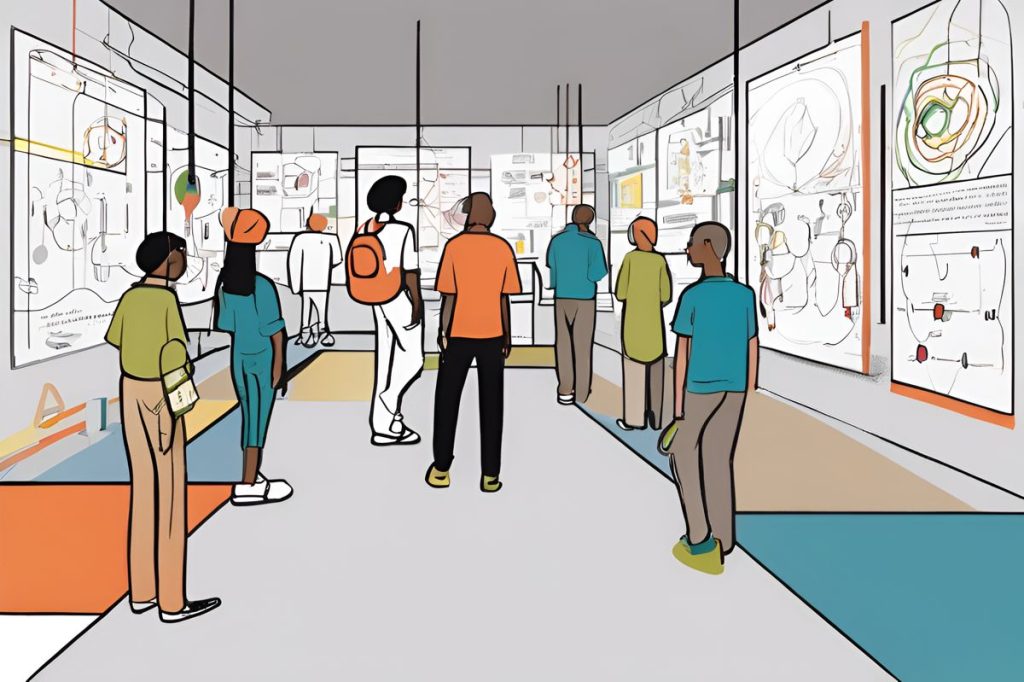The European Researchers’ Night transformed the Cyprus state fair into a vibrant hub of science on September 27, captivating over 3,000 visitors, particularly children, with interactive exhibits and exciting contests. Under the guidance of President Nikos Christodoulides and the Cyprus Research and Innovation Foundation, this year’s theme “Mission Possible” ignited curiosity and showcased the vital role of research in our daily lives.
What is the European Researchers’ Night and what was its impact at Mission Possible in Cyprus?
The European Researchers’ Night is an event that celebrates science and innovation, bringing researchers and the public together. At Mission Possible in Cyprus, it hosted interactive exhibits and contests to educate and inspire over 3,000 visitors, especially children, fostering a culture of innovation and emphasizing the role of research in daily life.
A Glimpse into the Future of Science and Innovation
The European Researchers’ Night, an event that sparks curiosity and showcases the wonders of science and innovation, recently unfolded at the Cyprus state fair. The event, themed “Mission Possible,” drew thousands of visitors on September 27, breathing life into the world of research and innovation. The Cyprus Research and Innovation Foundation (RIF) orchestrated this evening to ignite the minds of the young and old alike, demonstrating the power and presence of science in our daily routines.
Under the patronage of President Nikos Christodoulides, this celebration of knowledge marked its 18th year. It was a gathering of the minds with researchers and entrepreneurs from various domains, including universities, research organisations, and centres of excellence. They converged to demonstrate their latest discoveries and engage the public in the magic of scientific inquiry.
Engaging the Next Generation
The event was not just a showcase of scientific prowess but also a fertile ground for education. An impressive turnout of over 3,000 schoolchildren converted the fair into a dynamic learning environment. The array of more than 60 booths presented a tapestry of the latest advancements. Here, interactive experiments were not just observed but experienced, and the complexities of specialized equipment were unraveled. These hands-on activities were designed to captivate visitors of all ages—an essential step in fostering a lifelong interest in science.
An awards ceremony punctuated the event, spotlighting the achievements of students in the ebook and Science Unfold competitions. These contests, also hosted by RIF, are testament to the foundation’s commitment to fuelling the flame of innovation in young minds. Moreover, the Design Thinking Challenge, a new addition aimed at students aged 16 and above, emphasized innovative problem-solving and became a focal point of the night’s proceedings.
A Cultural Shift Toward Innovation
Nicodemos Damianou, Deputy Minister of Research, Innovation, and Digital Policy, addressed the audience, emphasizing the necessity of bringing science into the public sphere. His words echoed the sentiment that science should not be perceived as distant or esoteric but as an integral part of everyday life. This notion was further reinforced by Chief Scientist Demetris Skourides, who highlighted the significance of bridging the gap between the country’s innovative minds and the public.
The RIF’s Director General, Theodoros Loukaidis, echoed these convictions, speaking to the instrumental role of research and innovation in shaping a brighter future. He stressed the importance of nurturing a culture and skill set in the younger generation, enabling them to lead and shape the economy and society of tomorrow.
Celebrating Success and Embracing Equality
The BIOBANK.CY Centre of Excellence grabbed the spotlight by clinching the top prize for the best booth with its exhibit, “Swimming in the Cypriot gene pool, together with zebrafish!” This recognition underscores the importance of collaborative endeavors in advancing scientific understanding. Gender equality commissioner Josie Christodoulou also graced the event, reinforcing the message of inclusivity in research and innovation by engaging with the researchers and visiting various pavilions.
As the event drew to a close, comedians Stelios Anatolitis and Panagiotis Koudas offered a delightful comedic take on science, proving that humor can be an effective medium to engage and educate. The European Researchers’ Night, aligned with the European Commission’s mission, unfolded simultaneously in over 400 cities across Europe. It is a part of the “MISSION POSSIBLE” project, highlighting the everyday impact of science and funded under the EU’s Horizon Europe Programme for Research and Innovation.
FAQ – Unveiling Innovations at Mission Possible in Cyprus
What is the European Researchers’ Night and what was its impact at Mission Possible in Cyprus?
The European Researchers’ Night is an event that celebrates science and innovation by bringing researchers and the public together. At Mission Possible in Cyprus, it hosted interactive exhibits and contests that educated and inspired over 3,000 visitors, particularly children. The event fostered a culture of innovation and emphasized the crucial role of research in everyday life.
What activities were featured at the Mission Possible event?
The event featured over 60 interactive booths showcasing the latest advancements in science and technology. Visitors had the chance to engage in hands-on experiments, unravel complexities of specialized equipment, and participate in contests such as the ebook and Science Unfold competitions. A new Design Thinking Challenge encouraged students aged 16 and above to employ innovative problem-solving.
Who were the key figures involved in the event?
The event was held under the patronage of President Nikos Christodoulides and was organized by the Cyprus Research and Innovation Foundation (RIF). Notable speakers included Nicodemos Damianou, Deputy Minister of Research, Innovation, and Digital Policy, and Chief Scientist Demetris Skourides. The RIF’s Director General, Theodoros Loukaidis, also highlighted the importance of nurturing a culture of innovation in the younger generation.
How does the European Researchers’ Night contribute to scientific awareness and education?
The European Researchers’ Night aims to bridge the gap between scientific research and the public by making science accessible and engaging. It helps demystify complex scientific concepts, encourages curiosity, and fosters a lifelong interest in science among attendees, particularly young visitors. By showcasing the everyday relevance of research and innovation, it promotes a cultural shift towards valuing science in daily life.

